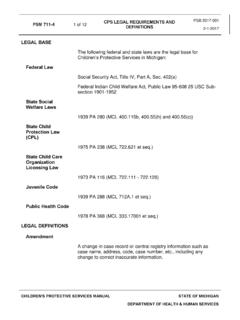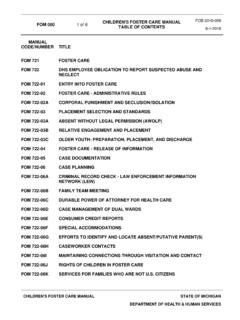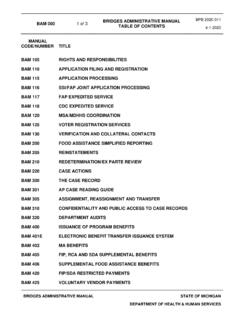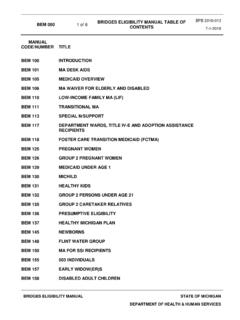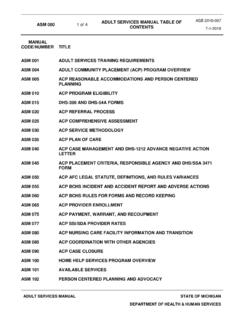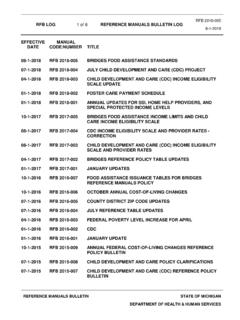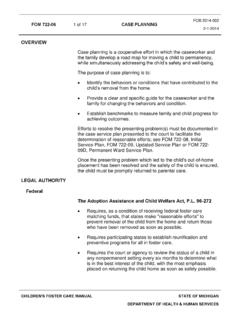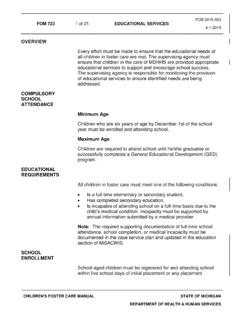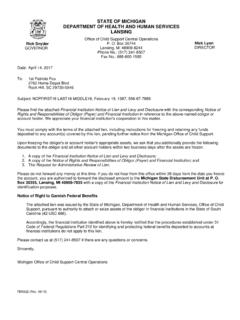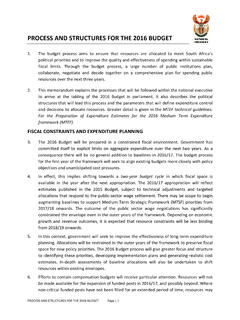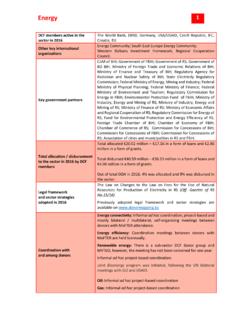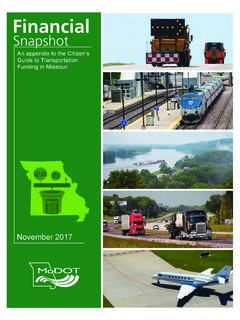Transcription of CPS SUPPORTIVE SERVICES - MDHHS
1 PSM 714-2 1 of 8 SUPPORTIVE SERVICES PSB 2020-004 3-1-2020 CHILDREN'S PROTECTIVE SERVICES MANUAL STATE OF MICHIGAN DEPARTMENT OF HEALTH & HUMAN SERVICES OVERVIEW A family may access SUPPORTIVE SERVICES to ensure the safety of the children in the home and improve family's well-being. Various funding sources are available to finance service provision. Individuals and families may be eligible for assistance payments programs, including healthcare coverage, Food Assistance Program (FAP), cash assistance, Child Development and Care (CDC), and State Emergency Relief (SER). Purchased SERVICES are those SERVICES purchased for a family through contracts negotiated between the Michigan Department of Health and Human SERVICES ( MDHHS ) and community-based service providers. The local office negotiates purchased service contracts. Within federal and/or state guidelines, local offices determine what SERVICES will be purchased with local contract funds, select service providers, negotiate and monitor contracts, assess provider performance, evaluate the effectiveness of contract SERVICES , and determine the continuance or termination of contracts.
2 ASSISTANCE PAYMENTS PROGRAMS Individuals can request assistance for Medicaid, food assistance, childcare, and cash assistance on the MiBridges website. Individuals are also able to apply by using the MiBridges app on their mobile device. Individuals can apply for assistance, upload documents, report changes to their current assistance case, and explore resources in the area. State Emergency Relief (SER) State Emergency Relief (SER) is a statewide resource to prevent serious harm to individuals and families. SER assists applicants with housing costs and other essential needs when an emergency arises that threatens health or safety. SER, when applicable, is a first resource to individuals and families and is often sufficient to resolve an emergency. Eligibility for SER is determined by MDHHS family independence specialists/eligibility specialists. SER program information, covered SERVICES , and department policy is detailed in the State Emergency Relief Manual (ERM).
3 PSM 714-2 2 of 8 SUPPORTIVE SERVICES PSB 2020-004 3-1-2020 CHILDREN'S PROTECTIVE SERVICES MANUAL STATE OF MICHIGAN DEPARTMENT OF HEALTH & HUMAN SERVICES FAMILY REUNIFICATION ACCOUNT (FRA) The Family Reunification Account (FRA) is a flexible funds sub-account under the local office Child Safety & Permanency Plan (CSPP) allocation. The local office determines the amount of CSPP funds designated for FRA. FRA funds are for the individualized needs of families and must avert/prevent unnecessary removal of children from their home, facilitate return home, or achieve permanency through relative placement. The local office is responsible for certifying that the concrete/direct service purchase meets eligible use criteria. For FRA eligibility requirements and request and exception processes; see FOM 722-12, Financial Supports. SUBSTANCE USE DISORDER SERVICES The MDHHS website has information on substance use disorder SERVICES available in each county.
4 Contact information is also available for regional Prepaid Inpatient Health Plan (PIHP) units. The PIHPs help administer substance use disorder prevention and treatment SERVICES to Michigan residents who have Medicaid insurance coverage or are underinsured. Collaboration between local child welfare staff and their regional PIHP units should occur to facilitate timely access to substance use disorder SERVICES . Under MCL (1), substance use disorder treatment agencies that have a waiting list for SERVICES , must give priority to a parent whose child has been removed or is in danger of being removed due to substance use disorders. Problems with particular treatment agency providers should be forwarded to the identified treatment coordinator in your region. Substance Use Disorder Family Support Program The Substance Use Disorder Family Support Program (SUDFSP) provides intensive SERVICES for substance affected families that are at risk of experiencing a removal due to child abuse and/or neglect.
5 SUDFSP provides skill-based interventions and support for PSM 714-2 3 of 8 SUPPORTIVE SERVICES PSB 2020-004 3-1-2020 CHILDREN'S PROTECTIVE SERVICES MANUAL STATE OF MICHIGAN DEPARTMENT OF HEALTH & HUMAN SERVICES families when a parent is alcohol- or drug-affected or has a co-occurring disorder. A Family Support Specialist works directly with participating families in their home and community. Interventions may focus on communication, family functioning, increased awareness of the impact that alcohol and/or substance abuse has on the parenting relationship with children, reduction of the use of substances, physiology and cognitive functioning, and recovery supports. A family can be eligible for SUDFSP SERVICES if a parent is determined to be substance affected and: The substance affected parent is responsible for the care and supervision of minor child(ren) and has an open MDHHS Children's Protective SERVICES (Category I, II, III and IV), foster care case or, The substance affected parent had an open CPS case that was closed within the past 18 months or, The substance affected parent had a CPS investigation within the past 18 months or, The substance affected parent had three or more rejected CPS complaints.
6 This service is available in nine counties across the state of Michigan: Clare, Isabella, Gladwin, Midland, Grand Traverse, Missaukee, Kalkaska, Antrim and Wexford. PSYCHOLOGICAL OR PSYCHIATRIC ASSESSMENTS AND EXAMINATIONS Psychiatric or psychological diagnostic assessments/examinations may be used to assist in determining the capacity of the parents to participate in and benefit from SERVICES , identify the parent's strengths and any areas of concern and assist with developing a treatment plan for further SERVICES , as appropriate. The DHS-93, Examination Authorization for SERVICES , may be used for assessment/examination costs in Children's Protective SERVICES cases. Funding for a psychiatric or psychological assessment/examination may be requested using the DHS-93 if all the following apply: PSM 714-2 4 of 8 SUPPORTIVE SERVICES PSB 2020-004 3-1-2020 CHILDREN'S PROTECTIVE SERVICES MANUAL STATE OF MICHIGAN DEPARTMENT OF HEALTH & HUMAN SERVICES The service is not available without charge through local resources, including community mental health agencies.
7 The service is not a covered service through Medicaid (MA). If MA eligibility exists and the service is covered under the MA program, the provider must bill the MA program. The parents are unable or unwilling to pay and do not have Medicaid or private insurance that will cover the needed service. Bill private insurance prior to using the DHS-93. In unusual circumstances, if a unique assessment/examination is required, an exception may be made with prior approval, even though third party payment is available. Obtain prior approval from the MDHHS county director, district manager, or designee. Use of the DHS-93 for payment of psychological and psychiatric SERVICES is restricted to psychological and psychiatric assessment/examination only. Treatment SERVICES may not be authorized using the DHS-93. Treatment SERVICES may be funded through MA, when it is a covered service, private insurance, or appropriate purchase of service contracts.
8 Payment maximums for psychological and psychiatric assessments can be found in SRF 800, DHS-93 Medical Service Authorization. An estimated cost of the assessment/examination must be obtained prior to the provision of service. The vendor's fee for service should not exceed the estimated cost. The estimate and the billing for ser-vice must include a detailing of SERVICES , including the cost of: Individual testing. Clinical interviews. Writing the report. Recommendations for treatment. Note: Treatment recommendations must be included in each assessment or examination report. Court ordered assessments/examinations must be paid for by the court issuing the order or from county funds. The DHS-93 must not be used to access state funds to pay for court-ordered assessments/examinations unless the department has specifically requested that the court order the assessment or examination. PSM 714-2 5 of 8 SUPPORTIVE SERVICES PSB 2020-004 3-1-2020 CHILDREN'S PROTECTIVE SERVICES MANUAL STATE OF MICHIGAN DEPARTMENT OF HEALTH & HUMAN SERVICES COMPREHENSIVE TRAUMA ASSESSMENTS For information on Comprehensive Trauma Assessments; see FOM 802, Mental Health, Behavioral and Developmental Needs of Children.
9 In order to make a referral for a Comprehensive Trauma Assessment, the service will need be completed while the case remains open. FAMILIES FIRST Families First of Michigan (FFM) offers families home-based, intensive, short-term crisis intervention and family education SERVICES for four weeks using the FFM model. FFM SERVICES are designed to support the family unit and to protect the well-being of the child(ren) to ensure the family remains safely intact or that the child(ren) can remain safely in the home. Families First will provide a minimum of 10 hours of contact with the family per week. An extension of up to two weeks may be available. FAMILIES TOGETHER/ BUILDING SOLUTIONS (FTBS) Families Together/Building Solutions (FTBS) offers in-home, solution-focused clinical interventions designed to serve families with multiple problems to enhance the family's well-being, improve safety of the child(ren) and address family issues and risk factors in the home.
10 FTBS SERVICES require family participation of three hours per week, or as needed, to address any risks that arise. FTBS intervention is available for up to 90 days with an option to extend for another 90 days. WRAPAROUND Wraparound is a team planning process that creates an individualized plan to meet the needs of children and their families by utilizing a strengths-based approach. Wraparound is an established practice of coordinating SERVICES and supports for families and their children, who have a serious emotional disturbance, are involved with multiple systems and where other forms of intervention have not had successful outcomes. Community Mental Health determines if a child is eligible for PSM 714-2 6 of 8 SUPPORTIVE SERVICES PSB 2020-004 3-1-2020 CHILDREN'S PROTECTIVE SERVICES MANUAL STATE OF MICHIGAN DEPARTMENT OF HEALTH & HUMAN SERVICES Wraparound SERVICES . Wraparound is available to eligible children/youth from birth-21 and their families involved in the Community Mental Health system and are available in every community in Michigan.
